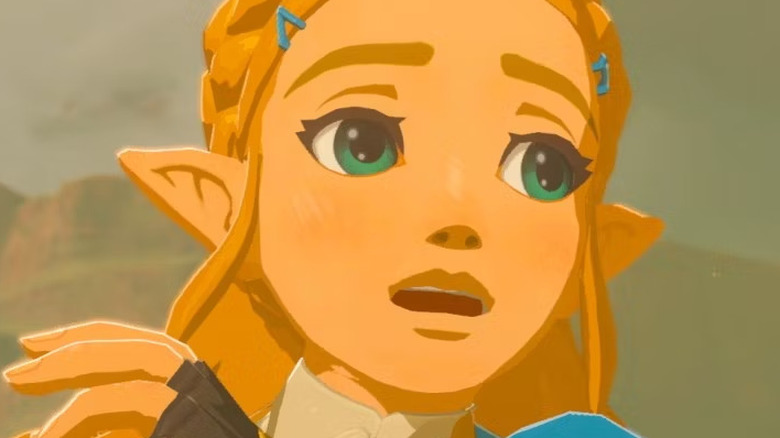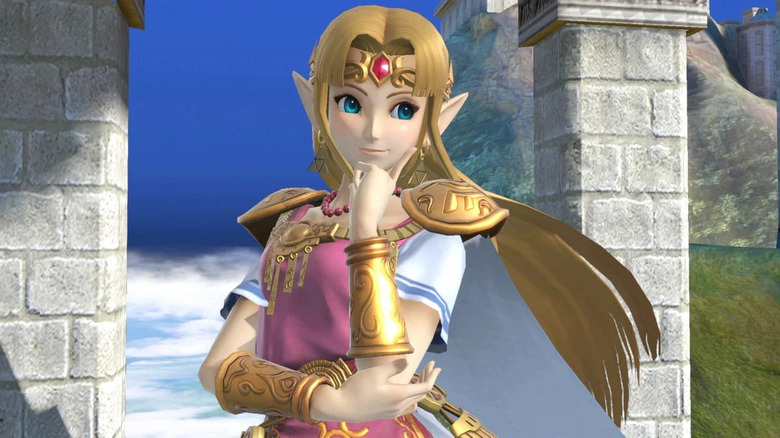The Unexpected Connection Between The Great Gatsby And The Legend Of Zelda
"The Great Gatsby" and "The Legend of Zelda" aren't names you'd often expect to hear in the same sentence, but it's true: The long-spanning powerhouse JRPG franchise from Nintendo owes a major element of its series identity to the work of 20th-century American novelist F. Scott Fitzgerald, as well as his wife, Zelda Fitzgerald.
While most fans probably know that Zelda Williams was named for Robin Williams' love of the video game franchise, it seems that Princess Zelda has a namesake herself. During their lives, Zelda Fitzgerald was just as famous as her husband for her strong personality and wild antics — her image as the proto-"manic pixie dream girl" archetype is immortalized in the tempestuous heroines of her husband's novels, having inspired the characters such as Gloria Gilbert of "The Beautiful and the Damned" as well as (perhaps most famously) Daisy Buchanan of "The Great Gatsby" (per The Guardian).
However, despite serving as a glamorous muse in multiple now-classic works, the posthumous legacy of Zelda Fitzgerald was anything but. While the true nature of the diagnosis that had her confined to mental health institutions for the latter parts of her life is a matter of modern debate (via HuffPost Women), the fact remains that her bold but unpredictable character is nothing like the many transformations of Princess Zelda we've seen so far. It begs the question: What could have possibly motivated Nintendo to pick a charismatic but thoroughly controversial figure as the namesake for the titular character in "The Legend of Zelda" series?
It was an offhand decision
Unfortunately, the answer is somewhat anticlimactic in that it amounts to simple unfamiliarity. In the foreword of "Hyrule Historia" — the franchise's only official and comprehensive "lore bible" that explains the entire timeline (via Archive.org) — series creator Shigeru Miyamoto recounts that his heart had been set on naming the game "The Legend of" something, but he hadn't been able to decide on what or who this something might be. Apparently, the PR planner for the game mentioned that there was "a famous American author whose wife's name is Zelda," and suggested the name to invoke a "classic appeal." Miyamoto ended up liking the name enough to stamp it onto the title as well as the principal damsel character, and the rest is history.
The interesting part is that Zelda Fitzgerald herself was named after a fictional character — namely, the titular character of "Zelda's Fortune," a dense novel by British author Robert Edward Francillon published in 1874 (via The Scott & Zelda Fitzgerald Museum). It's fascinating to think that Princess Zelda's name comes from a chain of namesakes dating back over a hundred years before "The Legend of Zelda" was developed, the century gap and cultural distance bridged by a simple offhand comment during development.


